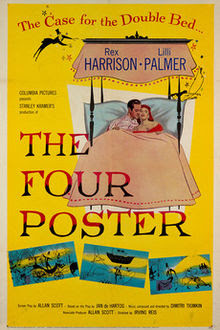 |
| Phil Cambridge's clever, though hard-to-read logo for "Behind the Film Scene." |
NOTE: This article continues my coverage of Ed Wood's When the Topic is Sex (BearManor Media, 2021).
The article: "Behind the Film Scene." Originally published in Blazing Films (Pendulum Publishing), vol. 6, no. 1, January/February 1972. Credited to Edward D. Wood, Jr.
Excerpt: "I doubt very much if today that my old, and very dear friend, Bela Lugosi could carry a picture unless all the ladies he bit in the neck were completely naked and had some kind of a lavish sex scene with the handsome hero beforehand. . . . Or the old gentleman himself became lecherous enough to remove her clothing behind a fence and make her before sucking her blood."
Reflections: This article is very much in the same spirit as "That's Show Biz." Again, Eddie is pontificating and free-associating about the many changes the movie industry has seen over the decades, particularly in regards to the depiction of onscreen sex and the increased demand for realism. What's different this time is that Eddie does mention a few specific film titles, including a few of his own. He talks about Crossroad Avenger (1953), Bride of the Monster (1955), Jail Bait (1954), Revenge of the Dead (1959), and even Take it Out in Trade (1970), which he calls his "first film in the nudie market."
 |
| A significant film, according to Ed. |
People who read a book like When the Topic is Sex probably became fans of Ed Wood through his movies, so they will relish the tidbits of information about those movies that Ed provides here. The director admits that, when he was first making films in the 1950s, he mistakenly thought that stars like Bela Lugosi and Tom Keene would be bigger box office draws than they actually were. He laments the end of the era when a big name on the marquee was enough to sell a movie. Wood further implies that, if Bela were alive in the 1970s, he'd have to make sexually-explicit movies in order to sell tickets. Perhaps it's for the best that this did not come to pass.
Eddie's memory may have been a little shaky by 1972. In this article, he says that Bela Lugosi starred in Revenge of the Dead (Ed's preferred title for Night of the Ghouls), which is absolutely untrue. The role of Dr. Acula in that film was intended for Bela, but the great Hungarian actor was several years dead by the time the script went into production. Western baddie Kenne Duncan stepped into the role instead and gave one of his most memorable performances as a phony psychic medium who gets his much-deserved comeuppance.
Can we trust Eddie's story about how he was prevented by the censors from showing a gun with a silencer in Jail Bait? How about his recollection of hiring someone just to clean up the horse droppings on Crossroad Avenger? These could well be figments of Eddie's imagination.
Honestly, it's difficult to summarize "Behind the Film Scene" because Eddie flits from one topic to another without a thought toward coherence. At one point, he discusses the so-called "sweater girls," i.e. the 1940s actresses like Lana Turner and Ann Sheridan who became notorious for their clingy, curve-enhancing cardigans and pullovers. According to Ed, the censors objected to the sweater girls, especially when their movies were shown to members of the military:
The Hays office decided the girls should no longer be dressed in the tight knitted garments because it turned so many of the boys in the service on. And that was one thing which shouldn't happen to them. After all they were in the business of battle. And if the powers that be gave them a little time off to see movies, they most certainly shouldn't see any girls sticking so far out in front. What would happen if they got turned on under such circumstances? Why there might be a whole generation of homosexuals who would come out of the war.
This is dubious reasoning, Eddie. I doubt that the Hays office thought Lana Turner was somehow going to turn a "whole generation" of soldiers into homosexuals. This seems like an out-there idea, even for Ed Wood.
By the way, this article mentions an infamous blooper from The Red Skelton Hour involving a cow that defecates on the stage during a sketch. "Wonderful cow!" Red enthuses. "Not only does she give milk, but she gives Pet-Ritz pies." For the curious, this classic TV moment is available online. It comes from a 1960 episode entitled "Clem and the Beanstalk." As you might guess from the title, this is a parody of "Jack and the Beanstalk" featuring Red's dimwitted character, Clem Kadiddlehopper. Actor Jack Albertson also appears in the scene as a character named J.B. Throckmorton, which is the kind of name you'd give a businessman back then.
Next: "What Would We Have Done Without Them?" (1972)

No comments:
Post a Comment